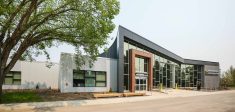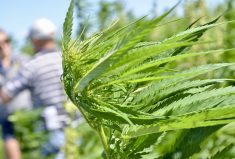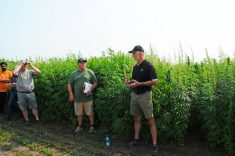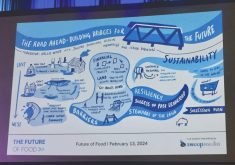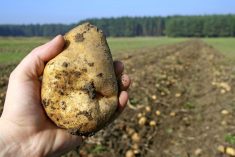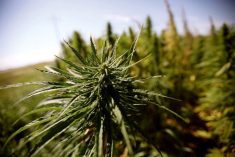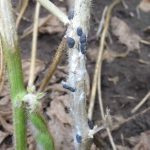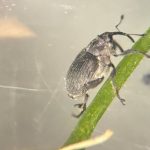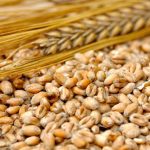Alberta farmers will be growing a lot more hemp when two new proposed processing facilities open their doors in 2024.
One is a $72-million hemp oil-processing operation to be built in a yet-to-be-determined location in southern Alberta while the other is a rare bird in the hemp sector — a facility that will process hemp fibres into bio-composites.
That second facility, which comes with a $75-million price tag, has a chosen site in Vegreville, customers (including Toyota and Winnebago) eager to buy its products, and expects to be in operation by 2024, said David Saltman, CEO of INCA Renewtech.
Read Also
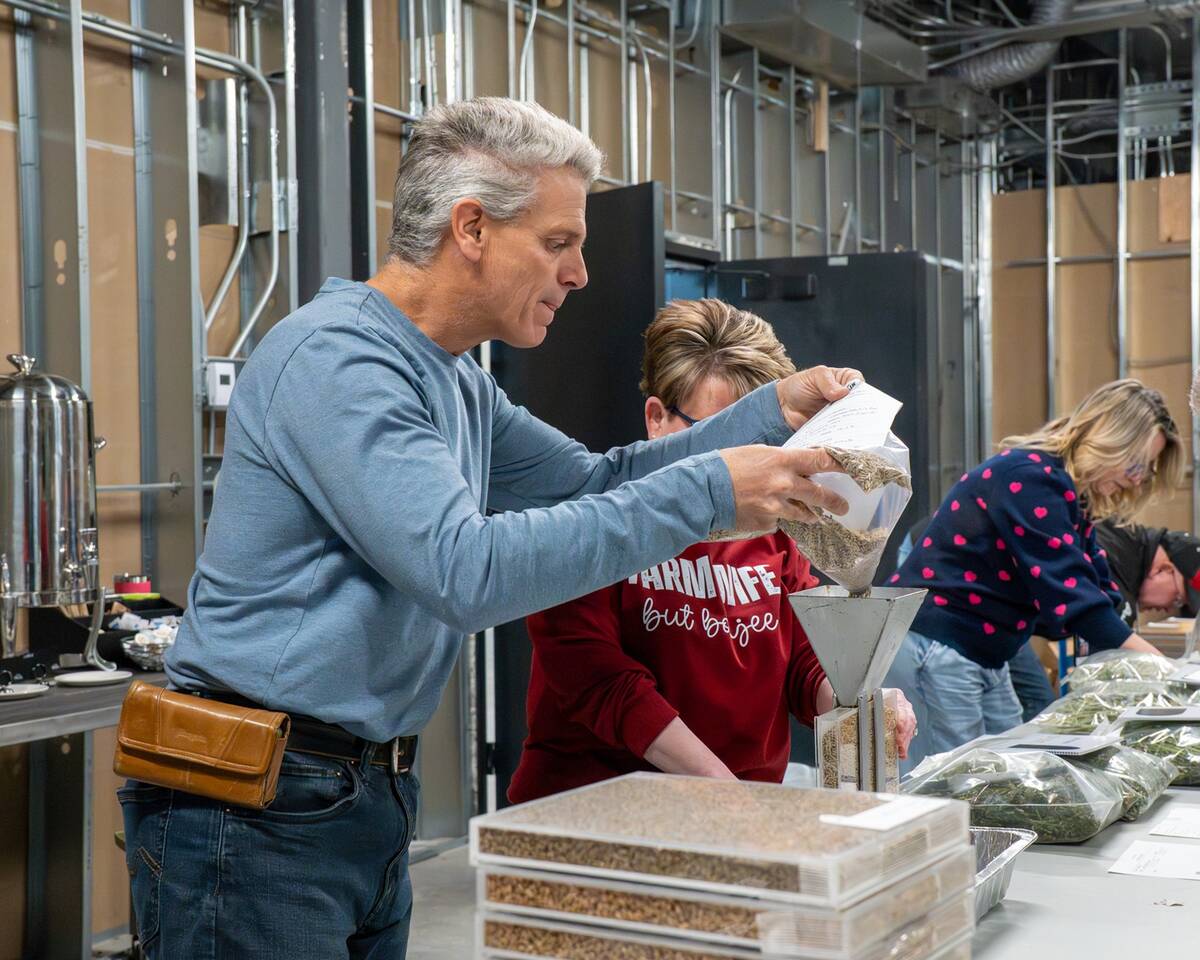
North American Seed Fair continuing a proud 129-year-old agricultural tradition
One of North America’s longest continually lasting seed fairs makes its 129th appearance in southern Alberta.
“The town was anxious to have our business,” Saltman said at a news conference announcing the two projects. “They have a town-owned industrial park that they are trying to develop, and we will be the cornerstone client. Land was a good value.
“Most importantly, it’s right on a CN Rail line. Although our hemp is coming in on flatbed trucks, we will ship some of the refined fibre down to our second factory in Bristol, Indiana, where we will make some of the composites for the recreational vehicle and automotive industries.”
While many people have long touted the potential for processing hurd (the core of the hemp plant) into industrial products, most current hemp production is focused on the grain side — specifically hemp oil, seeds and cannabidiol (also known as CBD).
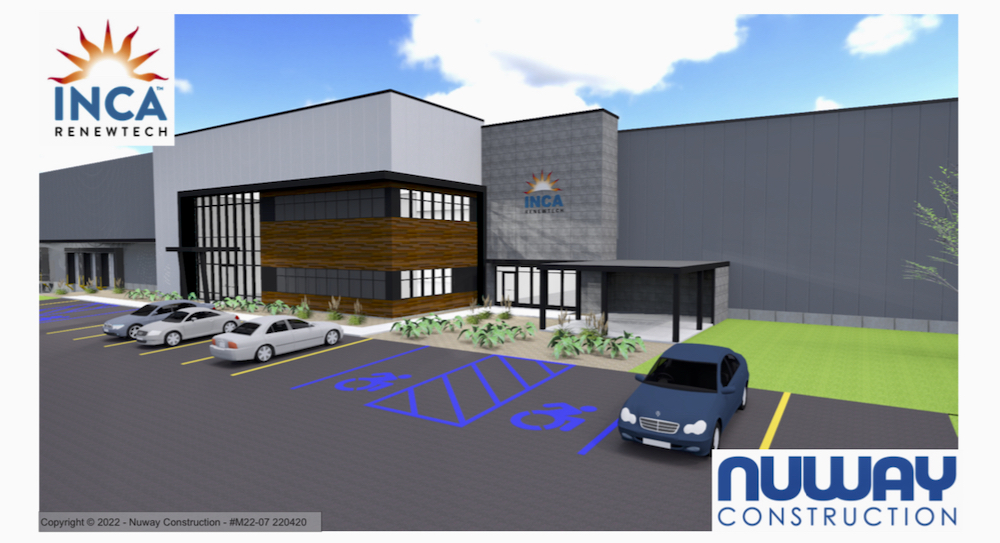
Those are products produced by Blue Sky Hemp Ventures at its processing plant in Saskatoon. Its new Alberta facility will produce purified hemp seed oil, said company CEO Andrew Potter.
“We take the grain, we crush the oil out of it, and we put it through a heating process to purify it, to increase the smoke point,” said Potter. “It widens the applications we can use the oil for.”
Hemp oil typically has a very low smoke point (that is, the temperature at which it begins to give off smoke) and increasing that means it can be used in frying, he said. It can also be used in the cosmetics market, which is a high-value market for purified hemp seed oil.
Once the oil is crushed, hemp meal remains, and it contains a lot of protein, added Potter.
“We’ve developed a way to hydrate that meal and turn it into a high-concentrate protein product,” he said. “There are some hemp protein products on the market. What’s unique about this is that it has a much higher protein concentration, and a more neutral taste profile.
“It’s more attractive to ingredient buyers because it is easier to blend with other products. We’re very excited about the market potential for these foods.”
Construction of Blue Sky’s new Alberta plant is expected to finish in 2024 and, once open, to process 35,000 tonnes of hemp grain annually. Potter said the company is considering several locations in southern Alberta.
New products, high hopes
INCA Renewtech’s 200,000-square-foot processing and composites-manufacturing facility in Vegreville will be located near InnoTech Alberta, the province’s research facility for hemp composites, genomics and agronomics.
“The goal there is to create the right circumstances to grow dual-use crops,” said Saltman. “We want a hemp variety and hemp techniques where we can get our long, strong fibre and Andrew and Blue Sky Hemp Ventures can get a good seed yield. InnoTech played a very important role in that.”
Being on a main rail line and in a good hemp-growing area are also key, he said.
“It doesn’t make a lot of sense if you’re going to do a hemp-based business to transport those big thousand-pound bales very far,” said Saltman. “We really have to locate our factory within about a 150-kilometre radius of enough hemp being cultivated to feed our factories.”
The facility is expected to need 54,000 tonnes of hemp biomass annually. INCA Renewtech has a team of agronomists and will be encouraging farmers to plant dual-use hemp, said Saltman, adding the company will be contracting its hemp and will pay farmers in advance for fibre and seed.
“We are not only signing off on the agreements with farmers, but we want to remove the risk of planting hemp because in the past, a lot of farmers got burned when they were made promises and they had a lot of hemp in the fields,” said Saltman.
INCA Renewtech has also been working with the InnoTech facility in Edmonton to create a new product called BioBalsa — a lightweight, highly compressive material, which can be a direct replacement for balsa wood in the manufacture of products such as wind turbine blades and boats. This product will also be made in Vegreville.
“That’s a huge production line,” said Saltman. “That is a line that, at full capacity, will be able to create 60 million board feet of BioBalsa a year. We’re not only using the raw materials — we’re creating value added in Canada.”
The company will also be making “pre-pregs” — a combination of natural fibre and polymer that can be shipped to companies like Toyota and compressed into 3D parts.
“In your car today, your seat backs, package trays and headliners are all done with these kind of compression moulded materials,” he said. “We have a joint development agreement with Toyota to develop a brand new set of materials for their electric vehicle program and we have an agreement in place with Winnebago for the bio-panels.”
The company expects the Vegreville facility to be operational by the middle of 2024, and it will hire about 50 full-time workers along with about 20 seasonal workers to help with the harvest. It will handle all the fibre processing including decortication (separation of the outer fibre from the inner core of the hemp). The long bast fibre will be refined to meet certain specifications and will be sent to Bristol to be made into panels and plastics, said Saltman.
“For that product, you really have to locate your manufacturing close to your customers,” he said. “Even though these two factories are separated by 1,600 miles, they really function as a single integrated unit. That’s really important from a logistics standpoint.”
The two projects are getting a total of $900,000 in grants from the provincial and federal governments — and a lot of praise from the province’s ag minister.
“The two projects will transform the hemp industry by creating a new, vertically integrated market for hemp here,” Nate Horner said at the news conference. “This is just the beginning.”
The province currently accounts for about 40 per cent of Canadian hemp production and provincial government officials are working on 19 other hemp-related projects, he said.
“Hemp is already a multibillion-dollar (global) industry, and it continues to grow,” Horner said. “The Canadian Hemp Trade Alliance is projecting a $1-billion hemp industry in Canada by 2025 and Alberta is well positioned to capture more of the world’s global market share with high inputs, and strong research.”




